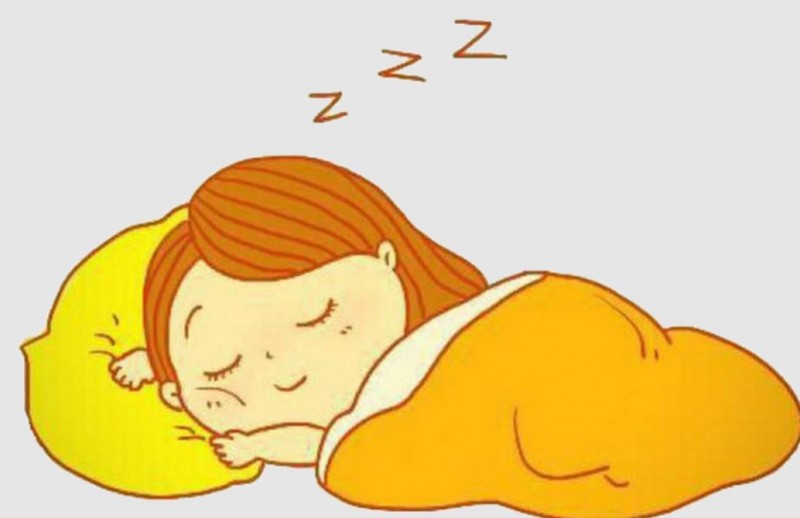
Have you ever wondered what happens to your body when you dream? Dreams can be fascinating and sometimes even bizarre. Most people experience a temporary paralysis of their muscles during the rapid eye movement (REM) stage of sleep, which prevents them from physically acting out their dreams. However, some individuals suffer from a condition called REM Sleep Behavior Disorder (RBD), where this protective mechanism fails, leading to vivid and often violent dream enactments. In this article, we will explore the causes, symptoms, diagnosis, and treatment options for REM Sleep Behavior Disorder.
1. Introduction
Sleep is a vital process for our overall well-being, allowing our bodies and minds to rejuvenate and recharge. During sleep, we go through different stages, including REM sleep, characterized by rapid eye movement and heightened brain activity. REM Sleep Behavior Disorder is a unique condition that affects a small percentage of the population, causing individuals to physically act out their dreams.
2. Understanding REM Sleep Behavior Disorder
REM Sleep Behavior Disorder, also known as RBD, is a parasomnia sleep disorder that disrupts the normal REM sleep cycle. During REM sleep, our bodies undergo a temporary muscle paralysis, known as atonia, to prevent us from acting out our dreams. However, in individuals with RBD, this muscle atonia is absent, allowing them to physically act out their dreams.
3. Causes of REM Sleep Behavior Disorder
The exact cause of REM Sleep Behavior Disorder is still not fully understood. However, research suggests that it may be associated with abnormalities in the brainstem, which controls sleep and muscle activity. Some studies have also linked RBD to certain neurodegenerative disorders, such as Parkinson's disease.
4. Symptoms of REM Sleep Behavior Disorder
Individuals with RBD often exhibit disruptive and potentially dangerous behaviors during sleep. These behaviors can include kicking, punching, shouting, jumping out of bed, and even violent movements. Often, they may recall vivid and intense dreams associated with their physical actions.
5. Diagnosis of REM Sleep Behavior Disorder
Diagnosing RBD requires a comprehensive evaluation by a sleep specialist. The diagnostic process typically involves a thorough medical history, assessment of symptoms, and possibly a sleep study, such as a polysomnography. In some cases, additional tests or consultations with other specialists may be necessary to rule out other underlying conditions.
6. Differentiating REM Sleep Behavior Disorder from Other Sleep Disorders
RBD can sometimes be mistaken for other sleep disorders, such as sleepwalking or night terrors. It is essential to differentiate RBD from these conditions to provide appropriate treatment. Sleep specialists rely on specific criteria, such as video monitoring during sleep, to distinguish RBD from other sleep disorders accurately.
7. Impact on Daily Life
Living with REM Sleep Behavior Disorder can significantly impact an individual's daily life and overall well-being. The disruptive and potentially injurious behaviors during sleep can lead to physical harm to the individual or their sleep partner. It can also cause excessive daytime sleepiness, fatigue, and emotional distress.
8. Treatment Options for REM Sleep Behavior Disorder
While there is no cure for RBD, several treatment options can help manage the symptoms and improve the quality of life for individuals with the condition. Treatment approaches typically focus on reducing the frequency and intensity of dream enactments, ensuring safety during sleep, and addressing any underlying causes or associated conditions.
9. Medications for REM Sleep Behavior Disorder
In some cases, medications may be prescribed to individuals with RBD to control their symptoms. The most commonly prescribed medications include clonazepam and melatonin. These medications help regulate sleep patterns, reduce muscle activity during sleep, and decrease the intensity of dream enactments.
10. Lifestyle Changes and Sleep Hygiene
Adopting healthy sleep habits and making lifestyle changes can significantly contribute to managing RBD symptoms. Establishing a regular sleep schedule, creating a relaxing bedtime routine, and ensuring a comfortable sleep environment are essential steps. Avoiding caffeine and alcohol, especially close to bedtime, is also advisable.
11. Safety Measures for Individuals with REM Sleep Behavior Disorder
Ensuring safety during sleep is crucial for individuals with RBD. Simple measures such as removing potentially harmful objects from the bedroom, padding sharp corners, and using bed rails can help prevent injuries. In some cases, caregivers may need to sleep in separate beds or rooms to protect themselves and the individual with RBD.
12. Coping Strategies for Individuals with REM Sleep Behavior Disorder
Managing RBD involves developing effective coping strategies to minimize the impact of the condition on daily life. Relaxation techniques, stress reduction methods, and engaging in calming activities before sleep can help promote better sleep quality and reduce the occurrence of disruptive behaviors.
13. Support and Resources for Individuals and Their Loved Ones
Living with RBD can be challenging, both for individuals with the condition and their loved ones. Seeking support from healthcare professionals, joining support groups, and connecting with others who share similar experiences can provide valuable insights, coping strategies, and emotional support.
14. Promising Research and Future Directions
Ongoing research continues to expand our understanding of REM Sleep Behavior Disorder and its underlying causes. Scientists are exploring potential links between RBD and neurodegenerative diseases, as well as investigating new treatment approaches. These advancements offer hope for improved management and potentially even prevention of RBD in the future.
15. Conclusion
REM Sleep Behavior Disorder is a fascinating sleep disorder where individuals physically act out their dreams due to a lack of muscle paralysis during REM sleep. While RBD can have significant impacts on daily life and pose safety concerns, there are treatment options available to manage the symptoms and enhance overall well-being. If you or someone you know is experiencing disruptive sleep behaviors, it is important to seek medical attention and consult with a sleep specialist for proper diagnosis and guidance.
India's Space Program Soars, ISRO Inspires Scientific Advancement